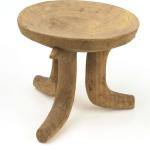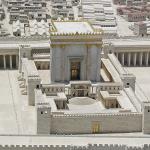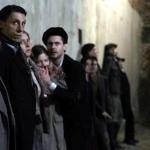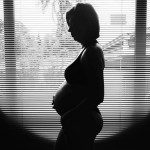 Several years ago I had the humbling honor of sharing my journey as a convert to the Orthodox Church with former my parish, a large cathedral in Washington DC. Here are some of my remarks:
Several years ago I had the humbling honor of sharing my journey as a convert to the Orthodox Church with former my parish, a large cathedral in Washington DC. Here are some of my remarks:
Being a part of this family, and having the Orthodox Church as my spiritual home, comes at the end of a long road of hope and longing for me. For so many of you, the depth of your faith and your commitment to the Church—indeed, your experience of the grace of Jesus Christ—are closely tied to the stories of your immigrant ancestors and how they came to this country: the yia yia who was once a scared little girl crossing the Atlantic, the uncle who swept diner floors from dawn until dark and managed to squirrel away millions.
As a child growing up in a little Southern town, I was always fascinated with the stories of immigrants who came to the United States in big ships and then lived in close-knit neighborhoods where houses, churches and synagogues, and stores all were in one block, and everything, I imagined, smelled like hot sweet bread from the bakery down the street.
I realize a lot of what I just mentioned about Greeks and immigrants is cliché, and that your own family stories are entirely distinctive. But there are some elements common to all immigrant stories, that explain why they have such a powerful hold on us: the experience of losing a homeland, the need to go to a new place and to find a new way to live, the experience of pain, uncertainty, and fear about the future, and the reliance upon faith and tradition to navigate difficult times.
As different as my Southern Protestant background is from the faith many of you learned at nouna’s knee, my own story is a kind of immigrant experience. From the earliest time I could remember, I’ve felt a sense of loss about the past, and that there was a source of joy I was missing.
I know now that our church fathers talk about how we miss our true homeland in God, and you all have heard Father talk about how each of us is the Prodigal Son in the far country, and God is our father welcoming us home.
My parents taught me the basics about God and Jesus, and the reasons to be honest and moral, for which I am grateful, but by the time I came along, my sisters and brothers were in high school and rebellious, members of the church of Jimi Hendrix. The family had stopped going to church, and I never had a sense growing up that faith connected to our everyday life as a family.
The worst was when, after forty-five years of smoking two packs of cigarettes a day, my father contracted lung cancer.
Sometime during the long fall when he was sick, though, I read a book that still haunts me. The book was about girls at a Catholic convent boarding school around the time of World War I. One rather naughty and doubtful girl discovers that her sister is on the verge of death from scarlet fever. As I recall it, the girl penitently goes to the chapel and asks the Virgin Mary—the Panagia, I call her now—to help change her heart and heal her sister. As it happened, the sister was healed.
This was an image that stayed with me: a woman who reflected God, beauty, and love. This was the kind of woman I wanted to be, even if the odds were against it. I hadn’t understood that Mary was more than a china figurine from our Christmas Nativity set.
An all-loving mother whom I could ask for help and who would pray for my protection was soon going to be something I really needed: My father did die. My siblings were all grown up and gone. Lacking a family, what I needed was the church.
The young evangelical couple across the street began to invite me over for dinner. As Greeks, you all can recognize the importance of food. You know that the simple giving of food can be more than just physical nourishment; it can be a true taste of heaven. This couple gave the gift of their love and their table, and I began to believe that the good news of Jesus Christ might really be true.
When I was in my mid-twenties, bare Protestant churches with one-hour sermons and abstract theology began to leave me cold. I began to want to be in a church where I could worship God with all of my senses. I wanted a church where there was beauty, and where they didn’t give easy explanations for why people suffer.
As it happened I was living in a community with a large and vibrant Antiochian Arab parish, and I walked in one day—right in the middle of the Festival, as it happened—and never left.
And as many churches as I have been in since, one thing has been the same about each of them: they were home. The Liturgy became a concrete expression of God’s invisible reality. As God stood in for the father I had lost, the Church stood in the places where my own mother, as much as I love her, was not able to go.
I want to thank you for all of your kindnesses to me, and to challenge you to continue and increase your fulfillment of the tasks of mercy and hospitality—concepts that are both deeply Biblical, Hebraic, and Hellenic—remember Nausikaa taking care of a tired Odysseus after he washed ashore.
As affluent and educated as so many of us have become, the immigrant experience often doesn’t seem to end. It just changes. And we need to reach out in a real and substantive way to the suffering around us. May this be a Lenten lesson for us all.















